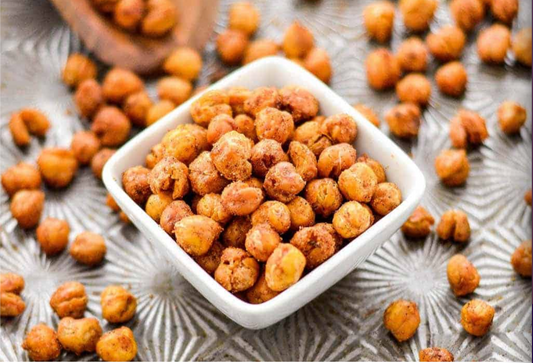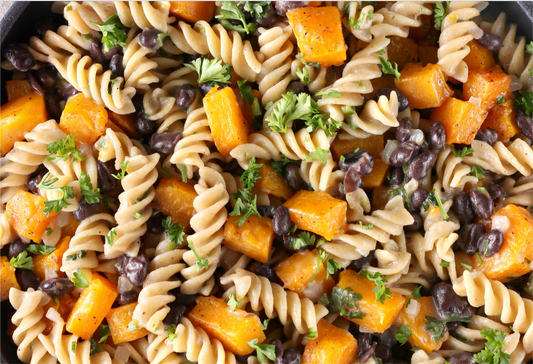My name is Debora Sloan and I’m excited to be working closely with BODZii as a dietitian to support every member on their health and weight loss journey. You’ll be seeing me more often on the BODZii blog helping you understand your body along your health and weight loss journey.
Part 1 of this menopause feature blog will shed light on some of the changes and challenges that come with the menopause years. It also will cover some key lifestyle strategies to consider as you navigate this stage of life. The truth is, while you’ve probably heard about the many dreaded symptoms associated with menopause, the term “menopause” gets thrown around to describe a longer and more complex span of stages and changes. The physiology of which is rarely explained.
The next part of this blog provides the background info and terminology you’ll need to truly buy-into WHY these specific lifestyle changes make sense, and thus make a real impact on how you conquer these years.
Keep in mind, if you’re not IN menopause or even anywhere close, this article is still a must read. If you’re a woman, whatever age or stage you’re in, the advice here can help you mitigate many of the less desirable symptoms that come with the inevitable aging and changing process; and it’s never too early to prepare. In fact, evidence shows that what you do in your younger years can impact how you age and your body’s response to the hormonal shifts.
Menopause is one physical marker that coincides with getting older, which can in-and-of itself conjure up a mixture of feelings for women. From experience, while all women have a unique experience with the transition, many are blind-sided by what’s going on with their body, and are left feeling desperate, unsupported and land up doing a bunch of misguided things that add insult to injury. Changing that course is where we come in, while having a better understanding of what’s happening will contextualize what to do and why.
WHAT IS MENOPAUSE?
This term is thrown around quite loosely, and often used to describe a very broad stage of the hormone transition women go through after age 40. But, Menopause is a specific term, technically defined by a single moment in time; that is, the day you have not had a period in one full year. Yay! Bye bye birth control, tampons, pads, cramps and all the other annoying things that come with our monthly friend.
Women experience menopause at different ages, some have an early onset in their early 40’s, which may be genetic or related to other health conditions and some have a later onset, past age 55. The average age of menopause is about 51. Once you’ve actually hit menopause, it’s not uncommon to have residual symptoms of the pre menopausal years like hot flashes, but many women find the fluctuations in hormones to be settling by this time, with symptoms tapering off.
POST MENOPAUSE
Now that we understand the true defining moment of menopause, post menopause is an easy one as it is the day and all the days after your period has stopped for a year and is subsequently, the stage you will be in for the rest of your life.
During menopause and in the post menopausal years, you don’t completely stop producing estrogen. However, of the three types of estrogen: Estrone, estradiol, and estriol, the most “active form” of estrogen, the estradiol, dramatically flatlines.
Estradiol is the most potent form of estrogen, that contributes to both wanted and less wanted symptoms throughout our life, but is largely responsible for our ability to build muscle and bone density and contributes to insulin sensitivity. Lower levels of estradiol explain why it is harder to maintain these in the years leading up to menopause, especially into the post menopausal years, corresponding with the more dramatic changes to bone health, body composition, and metabolic health that women start to notice.
You might already be starting to understand why the lifestyle changes recommended in here (Coach Robyn’s article)make good sense. Let’s reflect on what we’ve already learned and connect the dots.
If we don’t have as much of the hormone that helps us build and maintain strong muscles and bones, then what should we be doing to mitigate that? You got it. Exercise, specifically heavier lifting, resistance training alongside some high impact stuff, and a lot of nutrient dense foods, with attention to calcium, vitamin D, and good quality protein…a lot of it.
Since metabolically we also start to see insulin resistance, we often see women embarking on extreme carb elimination diets, like keto, or fasted training. While one can see the logic, you heard it here: These things exacerbate the fight or flight stress response, especially if we’re also trying to build muscle and push the intensity in our training.
This is no good.
Some cortisol, (your body’s stress hormone), is good. But too much exacerbates the belly fat, fatigue, poor recovery, and muscle breakdown we’re already fighting. A great tip is to time those great quality carbs around your exercise to get the most bang for your buck. After all we want to be fuelling and recovering optimally, at this time of life. This will reduce stress hormones, boost performance and improve body comp.
PRE-MENOPAUSE OR PERIMENOPAUSE
Backtracking in terms of the timeline of the menopausal transition, is what you may hear called pre menopause. Opposite to post menopause, pre menopause is technically any time before menopause actually hits, so is not very specific. Peri-menopause, is a more specific term categorizing the span of years when hormones are starting to change, but you have not yet gone a full year without your period. This is also the stage where most women come to see me in utter desperation and confusion.
“Nothing I’m doing is working and all the things that used to work aren’t anymore”. This line is on repeat. Does it sound familiar to you?
By definition: For those women who were always getting a regular period, the cycle was 25-40 days and lasted up to a week. Peri-menopause marks a shift in this regularity, entering into various stages of inconsistency from missing periods, to extremely heavy periods that may not have been your norm, to prolonged periods lasting weeks. Sounds super fun right?
This shift can happen as early as 36 but usually begins closer to age 45 and can last several years to some degree. During this time hormones are all over the map. Less predictability not only with your actual bleeding times, but with progesterone and estrogen going crazy.
Consequently this can be reflected in mood, anxiety levels, appetite, digestion, skin, sleep, water retention, body temperature, glucose levels, energy levels, mental clarity, athletic performance, body composition, and more.
Scientifically, during the years leading up to menopause, you have fewer eggs in your ovaries, so they’re not releasing eggs in the same regular monthly pattern. You still have estrogen increasing to prepare the uterine lining, but if and when no egg is released, there’s no activation of progesterone.
Too much estrogen and too little progesterone defines an “imbalance”. This is one example of an imbalance, but as you approach menopause, week to week and month to month are different depending on what’s happening with the egg release. Estrogen dominance leads to unwanted symptoms like headaches, moodiness, bloating and lots of other fun things. Not all women experience any or all of the symptoms described, but you will likely be affected by one or more at some point. While these changes are most prominent in the five years before menopause they can ebb and flow for 10 years. This is often the time women may want to try some medical interventions like hormone therapy, creams etc or adaptogens to improve quality of life.
Transitioning into Peri Menopause Preparations and considerations
Keep in mind, that it’s reasonable to see some signs and symptoms of hormone changes while still having your regular cycle. I hear this a lot of women in their late 30’s and early 40’s, which makes sense because already, the body is starting to shift; partly to do with age in and of itself, and the impending shift towards decreasing amounts of that active form of estrogen.
Remember too, that this phase of life is also often accompanied by life stressors, including a busy family life, kids, post partum challenges, career demands, financial pressures, changes to health status and activity level, aging parents and more. LOTS TO BALANCE.
Juggling all of this makes it harder to be consistent with lifestyle changes, healthy behaviours and also increases stress that has its own hormone impact and potential for disrupted sleep. This is all relevant and should be considered when you choose a plan, or embark on changes. This is not an easy time for many women, but the goal is to prioritize the things you CAN control and prepare yourself in the ways that are possible. Remember small changes make a big impact.
Although I’m not in peri menopause yet, approaching 40 I can certainly say changes are on the horizon. Armed with knowledge, I am more in tune to cyclical changes in mood, appetite, epic bloating, sleep, and 100% more extreme changes in energy and performance in the gym during certain weeks. While new, and frustrating, I’m trying to take a non judgmental approach to these changes, and adjust accordingly.
For example, I have taken a step back from a 5 day a week Crossfit regimen, to a 2 day a week Crossfit schedule. I’ve added in more low volume, heavier lifting days, balanced by some lower intensity days, complemented by core and accessory work to target my weaknesses.
I’m also trying to walk more, which adds good NEAT activity that is low stress, good for recovery, mood, and posture. I try not to compare how I was at 28 and pre-babies. I try to choose lower intensity workouts if I’ve a had a couple restless nights. I try to remind myself to fuel properly no matter what, and embrace the looser skin that hangs a little differently than it did 10 years ago. Different isn’t the same, but it doesn’t have to be bad. Different can also mean progress. A chance reflect on your own personal goals, find new ways to challenge yourself and evaluate what’s really important to you and for your family.
This is a personal story but for all you reading, it’s a perfect time to note the value of tuning in to your mental health, your body’s needs and your cycle during all phases of your womanhood. Your cycle, its regularity, or lack thereof, can be informative of your hormone health, energy availability as an athlete and many other things.
In summary, since we know our hormones impact our needs, how we feel and our response to a training stimulus, it makes sense to make appropriate adjustments to our sleep and recovery routine, fuelling choices, stressors, and our workout programming accordingly. This is not static and should be viewed as a moving target, influenced by age, stage, health, lifestyle, family needs, and personal goals. Ultimately, the goal is to work with your body rather than fight against it, it’s telling you things, respect it, love it, learn from it. if what you’re doing now isn’t working, maybe step back, re-evaluate, and seek support.
If you’re looking for more information on how to navigate this phase in your life, book a discovery call. We’ve helped 1000+ women take back control of their body composition and feel better than ever about their health and weight loss journey.




